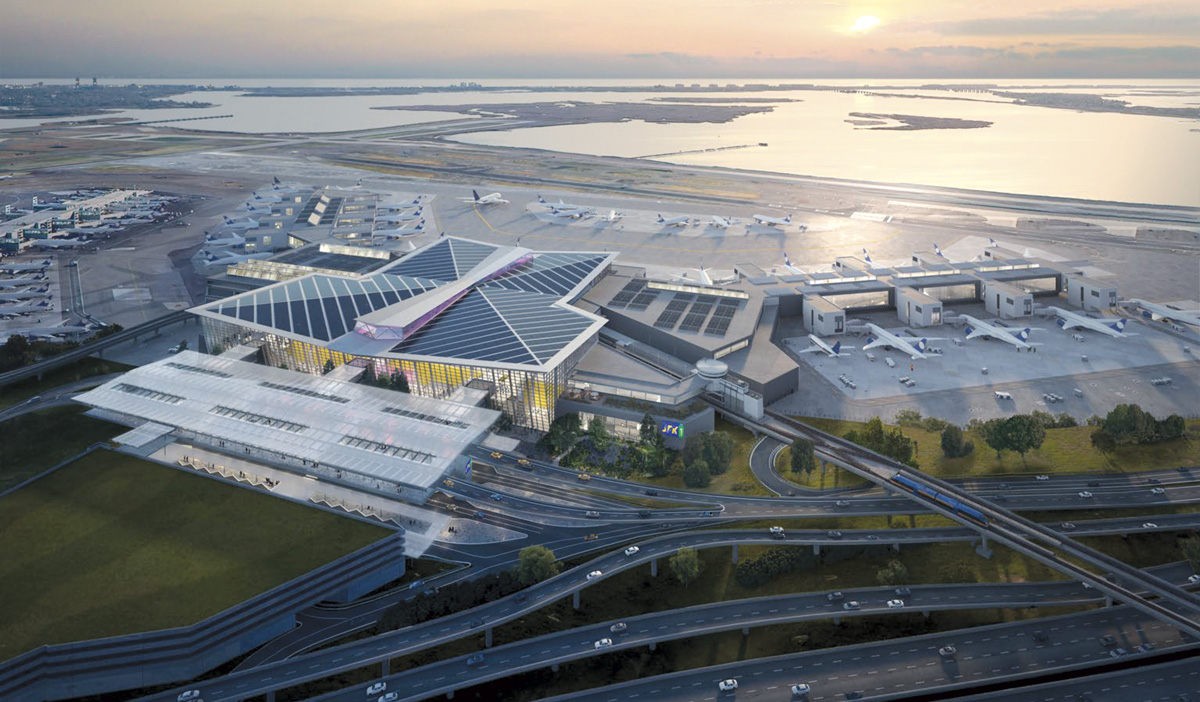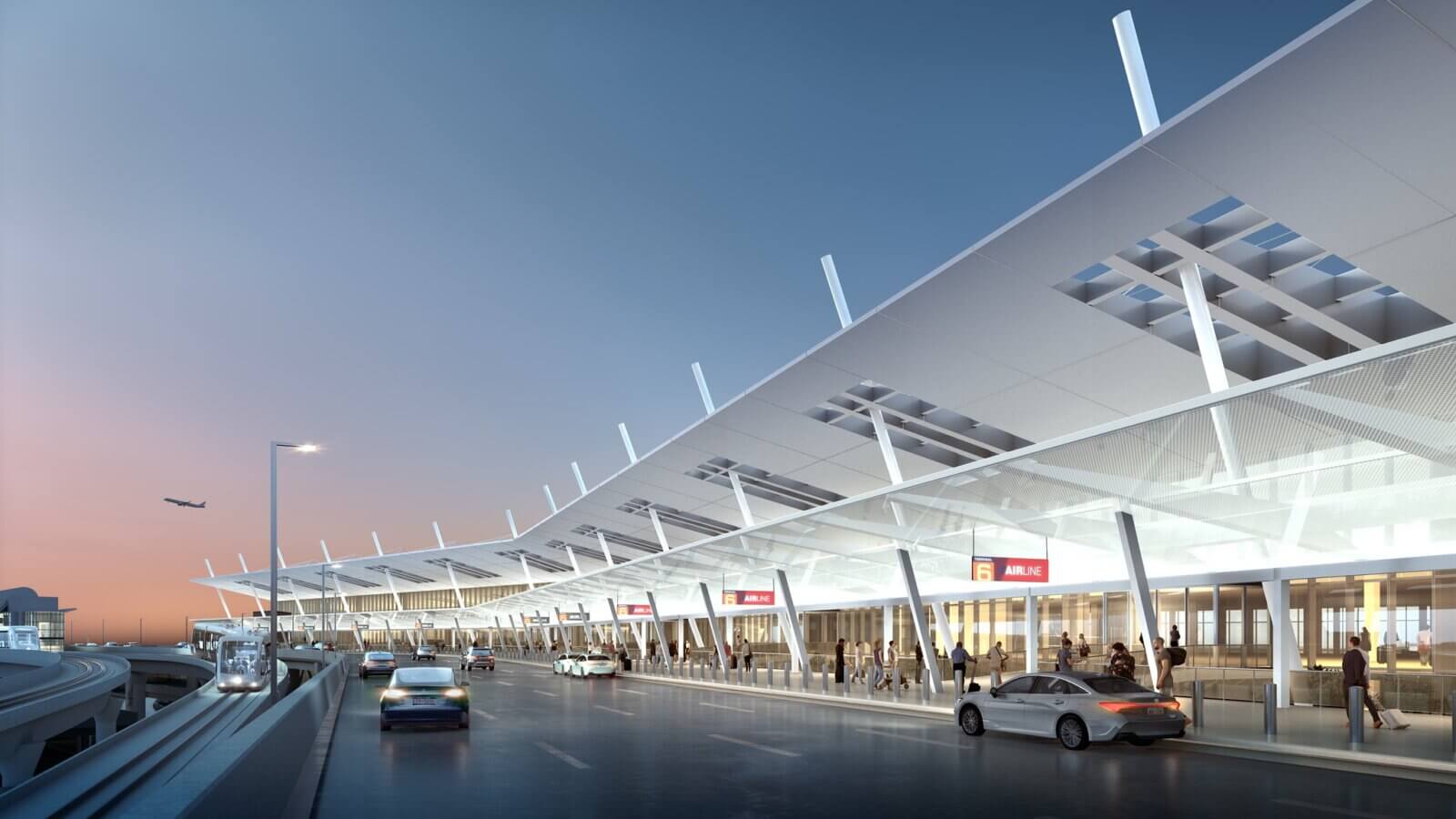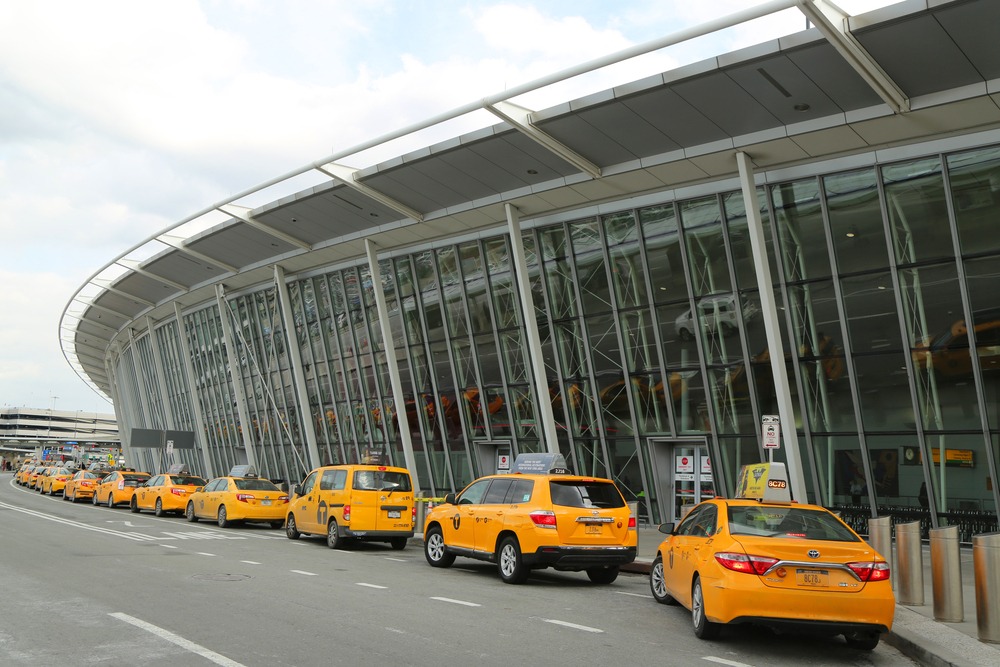John F. Kennedy International Airport, one of the busiest airports in the world, is home to numerous iconic structures that contribute to its operational efficiency and architectural significance. Among these, the JFK Port Authority Building 14 stands out as a vital component of the airport's infrastructure. This building plays a crucial role in supporting the airport's daily operations and serves as a hub for essential administrative functions. In this article, we will explore the significance, architecture, and history of JFK Port Authority Building 14 in detail.
The JFK Port Authority Building 14 is more than just a structure; it represents the backbone of the airport's administrative and operational framework. Understanding its purpose and functionality provides valuable insights into the inner workings of one of the most important transportation hubs in the United States.
This article delves into every aspect of the building, from its architectural design to its role in the airport's ecosystem. By the end of this guide, you will have a comprehensive understanding of what makes JFK Port Authority Building 14 such an integral part of the JFK Airport infrastructure.
Read also:What Is A Dry Sense Of Humor A Comprehensive Guide To Understanding The Witty Art Of Subtle Comedy
Table of Contents
- Introduction to JFK Port Authority Building 14
- Historical Background
- Architectural Design
- Key Functions and Operations
- Management and Oversight
- Sustainability Initiatives
- Security Measures
- Technological Advancements
- Future Developments
- Conclusion
Introduction to JFK Port Authority Building 14
The JFK Port Authority Building 14 is a cornerstone of John F. Kennedy International Airport's administrative infrastructure. Located within the airport premises, this building serves as a central hub for various administrative and operational activities. Its strategic location and state-of-the-art facilities make it an indispensable asset for ensuring the smooth functioning of the airport.
Significance of the Building
The significance of JFK Port Authority Building 14 lies in its role as the nerve center for administrative operations at JFK Airport. It houses various departments responsible for managing the airport's day-to-day activities, from flight scheduling to passenger services. The building's design reflects a balance between functionality and modern aesthetics, making it a model for other airport facilities.
Location and Accessibility
Situated in a prime location within the airport, the building is easily accessible to authorized personnel. Its proximity to key operational areas ensures efficient communication and coordination among different departments. The building's layout is designed to facilitate seamless movement and interaction among staff members.
Historical Background
The history of JFK Port Authority Building 14 is intertwined with the development of John F. Kennedy International Airport. Originally constructed in the mid-20th century, the building has undergone several renovations and expansions to meet the growing demands of the airport.
Early Years
In its early years, the building primarily served as an office space for airport administrators. As the airport expanded, so did the building's role, incorporating additional functions such as maintenance and logistics. The building's evolution reflects the airport's transformation into a global travel hub.
Recent Developments
Recent developments have focused on enhancing the building's capabilities to support modern airport operations. Upgrades in technology and infrastructure have been implemented to improve efficiency and sustainability. These developments underscore the building's adaptability to changing industry standards.
Read also:July 27 Horoscope Unlock The Mysteries Of Your Zodiac Day
Architectural Design
The architectural design of JFK Port Authority Building 14 is a testament to its functional and aesthetic appeal. Designed by renowned architects, the building combines modern elements with practical considerations to create a space that meets the needs of its occupants.
Design Features
- Open floor plans to promote collaboration and communication.
- Energy-efficient systems to reduce environmental impact.
- Advanced security measures integrated into the building's structure.
Material and Construction
The materials used in the construction of the building are chosen for their durability and sustainability. The use of recycled materials and energy-efficient systems aligns with the airport's commitment to environmental responsibility.
Key Functions and Operations
The JFK Port Authority Building 14 performs a variety of essential functions that are critical to the airport's operations. From administrative support to operational oversight, the building serves as the backbone of JFK Airport's infrastructure.
Administrative Functions
The building houses various administrative departments, including human resources, finance, and public relations. These departments ensure the smooth running of the airport's operations and provide support to other units.
Operational Functions
In addition to administrative tasks, the building also supports operational functions such as flight scheduling, baggage handling, and passenger services. The coordination of these activities is crucial for maintaining the airport's efficiency and reliability.
Management and Oversight
The management of JFK Port Authority Building 14 is overseen by a dedicated team of professionals who ensure the building's operations align with the airport's goals and objectives. The team comprises experienced individuals with expertise in various fields, including aviation, engineering, and management.
Leadership Team
The leadership team is responsible for setting the strategic direction for the building's operations. Their expertise and experience are vital in guiding the building's development and ensuring its continued success.
Operational Oversight
Operational oversight involves monitoring and evaluating the building's performance to identify areas for improvement. Regular audits and assessments are conducted to ensure compliance with industry standards and regulations.
Sustainability Initiatives
Sustainability is a key focus for JFK Port Authority Building 14, with numerous initiatives aimed at reducing the building's environmental impact. These efforts align with the airport's broader sustainability goals and demonstrate a commitment to environmental responsibility.
Energy Efficiency
The building incorporates energy-efficient systems and technologies to minimize energy consumption. Solar panels, LED lighting, and smart building management systems are just a few examples of the measures implemented to achieve this goal.
Waste Management
Effective waste management practices are in place to reduce the building's waste output. Recycling programs and waste reduction strategies are promoted among staff and visitors to encourage sustainable behavior.
Security Measures
Security is a top priority for JFK Port Authority Building 14, with comprehensive measures in place to protect the building and its occupants. These measures are designed to safeguard sensitive information and ensure the safety of all personnel.
Physical Security
Physical security measures include controlled access points, surveillance cameras, and security personnel stationed throughout the building. These measures are regularly reviewed and updated to address emerging threats.
Cybersecurity
Cybersecurity protocols are implemented to protect the building's digital infrastructure from unauthorized access and cyber threats. Regular training sessions are conducted to keep staff informed about the latest security best practices.
Technological Advancements
Technology plays a crucial role in the operations of JFK Port Authority Building 14, with advancements continually being introduced to enhance efficiency and effectiveness. These technologies are integral to the building's ability to meet the demands of modern airport operations.
Automation
Automation systems are used to streamline various processes, from data management to facility maintenance. These systems reduce the need for manual intervention and improve accuracy and reliability.
Data Analytics
Data analytics tools are employed to gather and analyze data related to the building's operations. This information is used to inform decision-making and optimize performance, leading to improved outcomes for the airport.
Future Developments
The future of JFK Port Authority Building 14 is bright, with plans for further enhancements and expansions on the horizon. These developments aim to position the building as a leader in airport infrastructure and operations.
Expansion Plans
Expansion plans include the addition of new facilities and the renovation of existing spaces to accommodate growing demands. These projects are designed to enhance the building's capabilities and support the airport's continued growth.
Innovation Initiatives
Innovation initiatives focus on introducing cutting-edge technologies and practices to the building. These efforts aim to set new standards for airport infrastructure and operations, ensuring the building remains at the forefront of industry developments.
Conclusion
JFK Port Authority Building 14 is a vital component of John F. Kennedy International Airport's infrastructure, playing a crucial role in supporting the airport's operations. Its architectural design, key functions, and commitment to sustainability make it a model for other airport facilities. As the airport continues to grow and evolve, so too will the building, ensuring its continued relevance and importance.
We invite you to explore more articles on our site to deepen your understanding of airport infrastructure and operations. Your feedback and insights are valuable to us, so please feel free to leave a comment or share this article with others who may find it interesting.
References:
- Port Authority of New York and New Jersey Official Website
- Federal Aviation Administration (FAA)
- International Air Transport Association (IATA)


